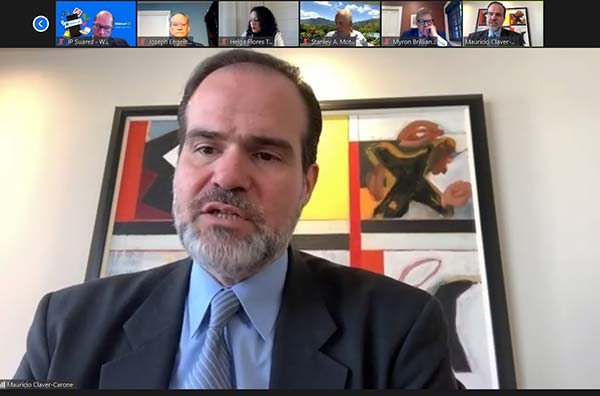
On December 2, 2020, business leaders from the Americas came together to discuss how the public and private sectors can cooperate to take advantage of opportunities for integration, foreign direct investment and nearshoring to support the economic recovery of Latin America and the Caribbean.

The high-level dialogue “Integration for recovery and the level of growth: nearshoring in the Americas” was organized by the Inter-American Development Bank (IDB) with the support of the Americas Business Dialogue (ABD). More than 500 private sector leaders participated in the online event. The highest authorities of the Investment Promotion Agencies of Latin America and the Caribbean also participated in the event.
Mauricio Claver-Carone, IDB president, and ABD member companies, particularly those belonging to the manufacturing sector, global services and institutional investments, analyzed the type of government policies and incentives that would allow firms to enhance their productive capacity and improve the resilience of supply chains in Latin America and the Caribbean.Claver-Carone explained how governments can take advantage of collaboration with the private sector to achieve progress in three dimensions —Investment, Infrastructure and Integration—, essential to attract companies interested in relocating their production, which can generate employment and growth, contributing to the economic recovery of the region.
To take advantage of these opportunities, governments and the IDB must collaborate with private sector leaders and companies to increase productivity, enhance human capital growth, and strengthen quality standards that enable companies to be local partners of the foreign investors. In a panel moderated by Fabrizio Opertti, manager of the IDB Trade and Integration Sector, industry leaders presented their views on foreign direct investment in the context of the COVID-19 pandemic. Recent changes in global value chains and growing efforts by companies to improve the resilience and robustness of their supply chains, accelerated by the health crisis, present a unique opportunity for Latin America and the Caribbean.